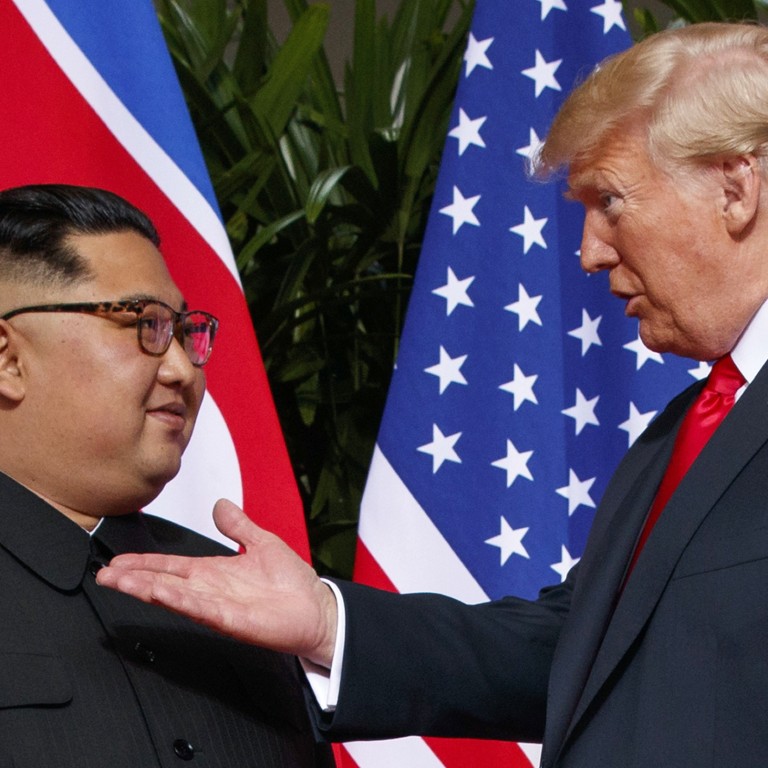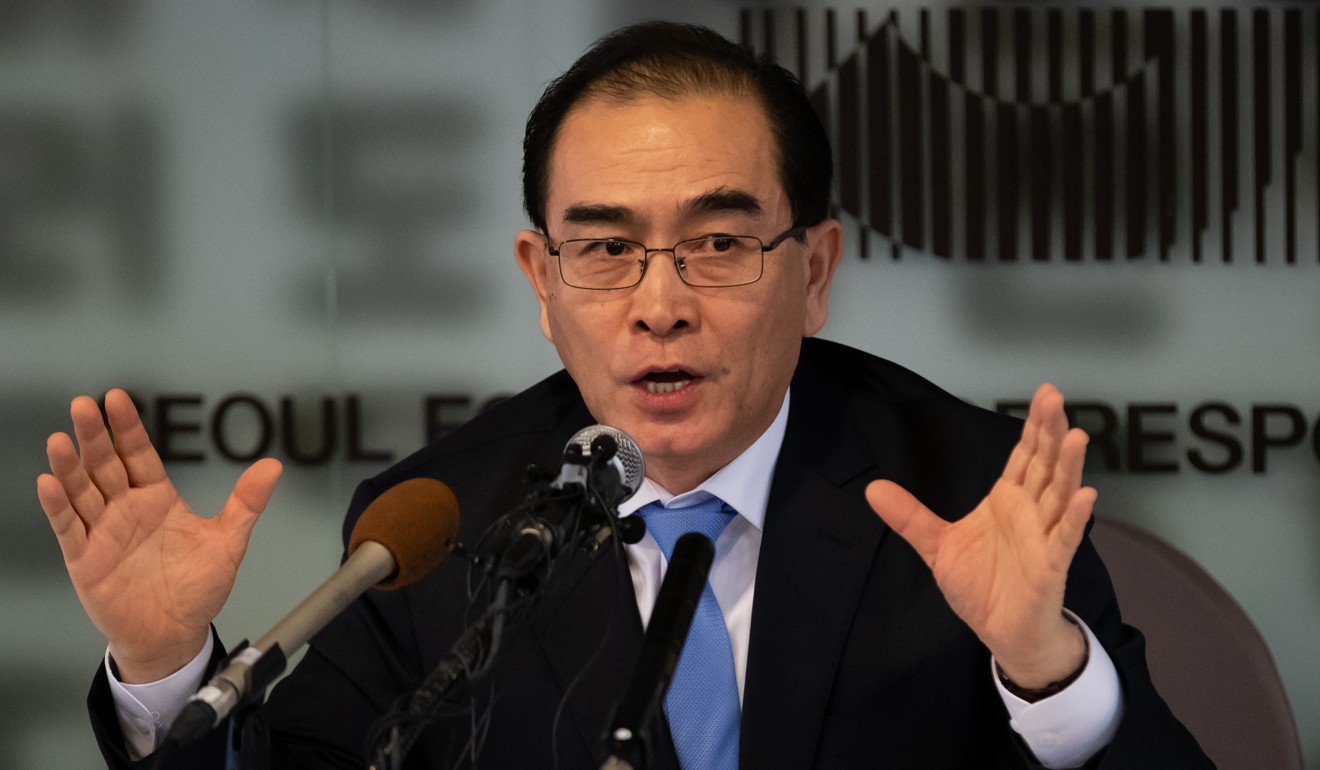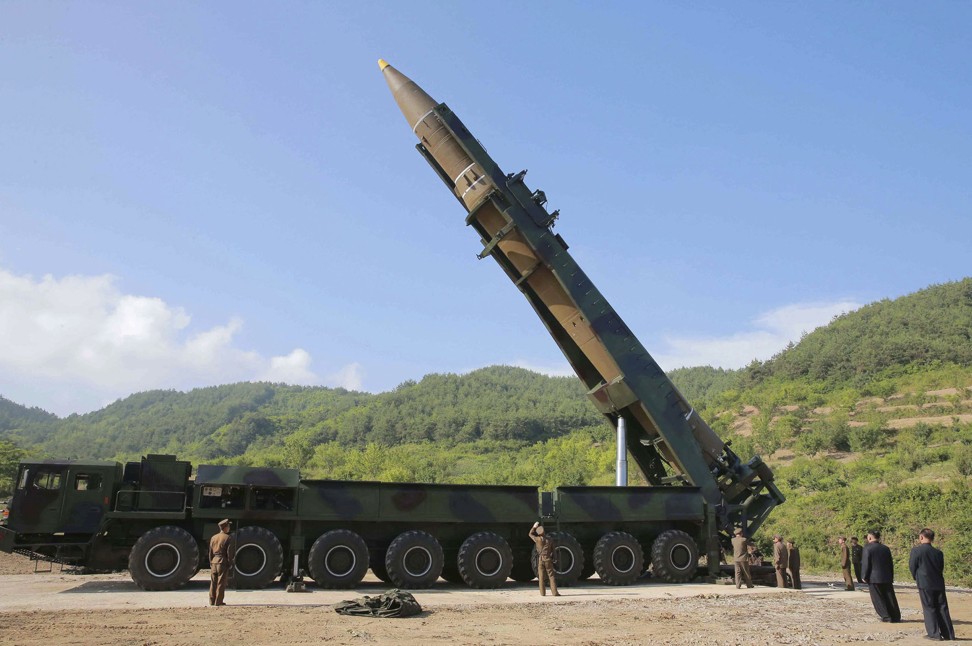
Trump-Kim summit 2019: is North Korea really willing to give up its nukes? The Americans who negotiated a 1994 deal still have hope
- Under Bill Clinton, US agreed deal to freeze Pyongyang’s plutonium production
- But that deal collapsed after North Korea established parallel programme
“I don’t think any of us on the team were optimistic,” said Gallucci, who led the team tasked with resolving an impasse that brought then president Bill Clinton close to war with North Korea. “We thought there was a chance that they wanted something from us.”
The Agreed Framework, which included the North agreeing to freeze plutonium production in exchange for civilian-use reactors and the normalisation of relations with Washington, remained in place for nearly a decade before falling apart after it emerged Pyongyang had been enriching uranium.
Explained: how the Korean peninsula was divided
Thae Young-ho, North Korea’s former deputy ambassador to London who defected to the South in 2016, on Tuesday insisted Pyongyang would not relinquish its nuclear weapons “under any circumstances”.
“Even if it is paid trillions of dollars, the North will never abandon nuclear weapons under the Kim Jong-un regime,” Thae said. “Nuclear weapons mean everything for the North. They are the pillars that support its system and that fills the gaps in its conventional weapons.”

Gallucci acknowledges his sense of déjà vu but is not ready to side with naysayers who dismiss the latest bid to disarm the North as bound to fail.
“It could be that what [North Korea] really want is to become a non-pariah state. And with those nuclear weapons they are in a way destined for pariah [status]. My view is I don’t know. Let’s find out.”
Robert Carlin, a former CIA analyst who also helped negotiate the Agreed Framework, said the second Trump-Kim summit could be productive.
“I think that from the signals we are getting from the North Koreans, they certainly want us to stay in this process and that they’re liable to work with the Americans to make sure that there’s something useful, practical, positive that comes out of the summit,” said Carlin, a visiting scholar at Stanford University’s Centre for International Security and Cooperation.
Nuclear weapons mean everything for the North. They are the pillars that support its system
The Agreed Framework was contentious 25 years ago and remains so. At the time of its signing, it was criticised by congressional Republicans who argued it was too accommodating of Pyongyang. Despite being credited with halting the North’s production of plutonium, the deal was abandoned by the administration of George W. Bush in 2003 after US intelligence determined Pyongyang had set up a parallel programme for uranium enrichment. Analysts remain divided over whether the Bush administration or North Korea did more to subvert the gains of the agreement. Gallucci, for his part, insists he and his team got the best deal possible at the time.
“Remember, when we were negotiating, we didn’t think the North had any nuclear weapons and our intelligence was that if we didn’t stop the plutonium programme they could have 100 or so weapons by the end of that decade, by the time that president Bush came into office in 2001,” he said.
“As it turned out, they didn’t have 100 nuclear weapons then, they had zero nuclear weapons then, as best we knew, and they had zero, not 100, because we did that deal. So if you ask if it was a good deal from our perspective? Yeah. For me, it was a very good deal. Did they cheat? Yeah, no question about it.”
Trump, who has blamed past administrations for leaving him a “mess” on North Korea, faces a very different landscape to the one that existed in 1994, when Clinton spearheaded the last major diplomatic breakthrough on denuclearisation.
Clinton came close to ordering a pre-emptive strike on the North, and Pyongyang had yet to demonstrate it could build a working nuclear device. Since 2006, Pyongyang has carried out six successful nuclear tests – the most recent in September 2017 was estimated to have been up to 16 times as powerful as the bomb that levelled Hiroshima in 1945. In November 2017, the North test-launched an intercontinental ballistic missile that state-run media said was capable of striking any city in the US.
Donald Trump now says there’s ‘no rush’ for North Korea to give up nuclear weapons
During their first summit in Singapore in June, Trump and Kim signed a vaguely worded statement in which the North Korean leader pledged to work towards “the complete denuclearisation of the Korean peninsula”. It remains unclear whether any real progress has been made, with non-proliferation experts downplaying Pyongyang’s subsequent steps – including demolishing tunnels at a nuclear facility and dismantling a missile test site – as largely symbolic, reversible or unverified.
In Hanoi, the US is expected to push for concrete steps towards denuclearisation in exchange for concessions such as sanctions relief or normalisation of relations.

Carlin said there was no reason the summit could not be seen as productive so long as observers held onto “realistic expectations”.
“Denuclearisation is the end point, and we’re not at the end point yet, we are not near the end point yet,” he said. “So the question is the process. Is the journey going to be moving in that direction at the end of this meeting, and maybe a third meeting, maybe a fourth meeting?”
Gallucci said the summit could be considered a success if Pyongyang agreed to dismantle some facilities in the presence of inspectors and the two sides produced a clear plan on next steps.
“What happens next can’t be another summit in six months or a year, it has to be a process of engagement of experts as they try to move ahead with all that has to get done,” he said.
Connect with us on Facebook and Twitter

